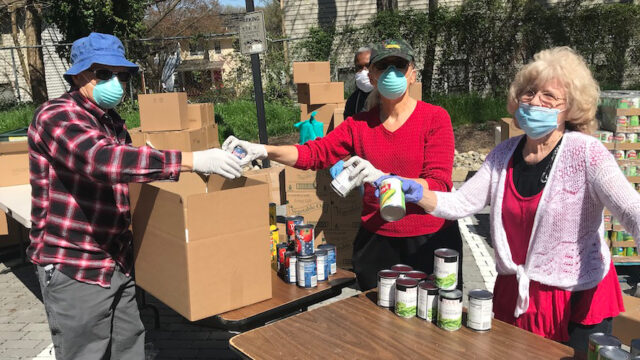We have never experienced a couple growing happier in their relationship because of the unsolicited help of a family member.

My wife doesn’t have a good memory. Often when she tells a story about something that happened in our family or between us, she gives inaccurate information. When we have people over for dinner and she tells one of her stories, I am often embarrassed that she almost always leaves things out of the story or adds stuff that didn’t happen. When I correct her to help keep her story straight she gets upset. This is becoming chronic the older she gets, and it’s driving me insane. I welcome your advice.
Thank you for your important question. You are not alone, since we have heard similar concerns from individuals around the world. Indeed, we’ve often witnessed in person the type of exchanges you describe.
Not long ago we were talking with a couple who had been married for more than 20 years. The wife was blissfully sharing the wonderful vacation they had just enjoyed in the Bahamas. It was evident that she was very excited about sharing with us how she and her husband made their marriage such a priority that they saved funds to enjoy time together in a beautiful place.
No sooner had she mentioned where they had vacationed, that her husband chimed in, almost annoyed. “No dear,” he said, “we went to the Cayman Islands, remember?” The bubbly, cheerful personality of the lovely woman suddenly changed from joy to sorrow.
On a different occasion, we were speaking to a family with two teenaged children. The son shared with a measure of pride that he had learned to water ski at summer camp three years before. This youngster obviously enjoyed the activity he was talking about, and felt confident about the skills he had mastered. Then his mother cut into the conversation and said, “It was two years ago, Jerome, not three years ago.”
The youngster’s response was instantenous. The once happy face was replaced by a scowl, and drooping shoulders replaced his confident body language.
We share these stories to make the point that we have never experienced a couple growing happier in their relationship, or a parent-child connection enhanced, because the story being told became more accurate because of the unsolicited help of a family member.
The truth is, as kind as the husband was trying to be in the first story, and as helpful as the mother was attempting to be in the second anecdote, these are very offensive examples of the tendency many of us have to publically correct one another, particularly those closest to us. These instances also reveal how ill-mannered and potentially destructive this practice can be to the quality of relationships.
In both these illustrations, the correction was completely needless, adding no real value to the information being shared. Clearly there was no intent to deceive on the part of the happy wife about where they had vacationed, since both the Bahamas and the Cayman Islands are beautiful Caribbean islands very close to each other, with wonderful beaches that would be a privilege for anyone to enjoy. Neither was there an attempt to deceive on the part of the teen about how long it had been since he learned to water ski. Whether two or three years ago, it surely didn’t matter.
So our counsel is to check your conduct and motives, rather than your wife’s inadvertent errors. While her stories will not hurt anyone, your constant corrections will convey that speaking in your presence may not be safe.
In the course of communicating with your spouse, remember the counsel: “Love is patient and kind” (1 Cor. 13:4, ESV[*]).
We pray that your marriage relationship will grow healthier and stronger as you prioritize being patient and kind in your daily interactions.
Willie Oliver, PhD, CFLE, an ordained minister, pastoral counselor, and family sociologist, is director for the Department of Family Ministries at the world headquarters of the Seventh-day Adventist Church.
Elaine Oliver, MA, LGPC, CFLE, an educator and counseling psychologist is associate director for the Department of Family Ministries. You may communicate with them at: Family.Adventist.org or HopeTV.org/RealFamilyTalk.
[*] Scripture quotations marked ESV are from The Holy Bible, English Standard Version, copyright © 2001 by Crossway Bibles, a division of Good News Publishers. Used by permission. All rights reserved.








